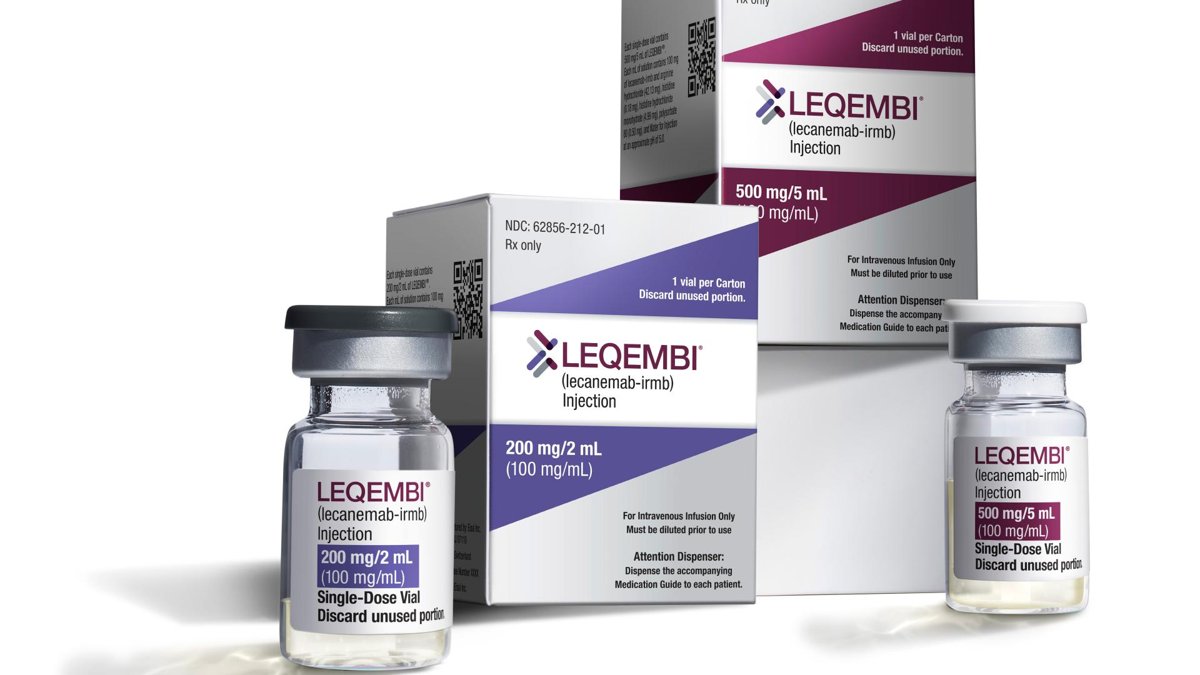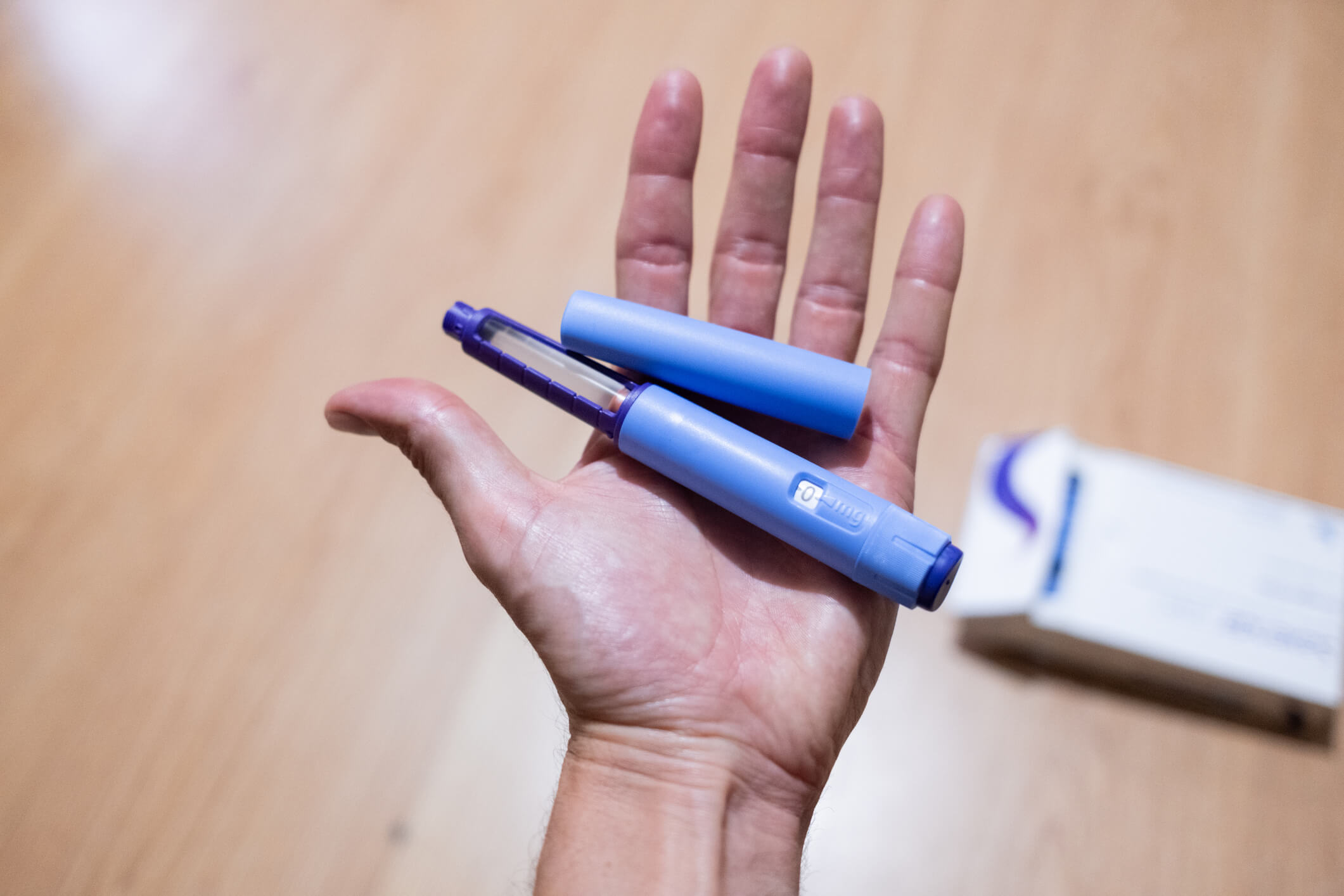
A newly approved Alzheimer’s drug is creating interest and offering renewed hope to people with signs of early dementia. Here’s what to know about lecanemab, which is being sold under the name Leqembi.
Leqembi received full approval from the FDA on July 6, 2023. It is an antibody that works to clear the brain of an abnormal protein called amyloid, known to be one of the root causes of Alzheimer’s. It’s intended for people who have mild cognitive impairment or mild dementia and are shown to have amyloid present in their brains.
How Does It Work?
In a clinical trial that tested Leqembi in 1,800 people, the drug slowed down the progression of cognitive loss by an average of about 25% over 18 months. The drug also was shown to slow the loss of brain function needed to perform activities of daily living, which together with memory loss are hallmarks of Alzheimer’s disease.
The FDA gave conditional approval to Leqembi in January 2023 and granted full approval in July based on the clinical trial results.
Is it Covered by Medicare and Insurance?
Starting July 6, individuals diagnosed with early cognitive impairment or mild dementia caused by Alzheimer’s disease under the care of a qualified physician will be eligible to receive drug coverage under Medicare Part B. Doctors who prescribe Leqembi will need to participate in patient registries for the drug to be covered by Medicare.
These registries collect data such as patients’ demographics, diagnosis, and medical history. Doctors will also need to report whether the patients are taking medication for blood clots, and they must include any side effects that people taking Leqembi may experience. In addition, they will need to submit the results of brain scans and other tests that assess amyloid levels, an Alzheimer’s protein that is the target of Leqembi.
Commercial health insurance plans may cover Leqembi, so patients are advised to check with their plan. Plans may require prior authorization for a physician to obtain approval from the plan prior to prescribing the drug. Leqembi also offers a copay assistance program to help commercially insured people with their medication costs.
For individuals paying out of pocket, the cost of Leqembi is $26,500 a year, in addition to the cost of the medical tests needed to determine if amyloid is present in the brain, such as PET scans or spinal taps.
How is Leqembi Given?
Taking Leqembi is a significant commitment. Unlike other Alzheimer’s drugs that are taken as pills, Leqembi is given through IV infusion every two weeks. It is available at certain infusion centers across the U.S. Each infusion lasts about an hour.
Some people may need medicines before the infusions to decrease their chance of having an infusion-related reaction. These medicines may include antihistamines, anti-inflammatory medicines, or steroids.
What Are the Side Effects?
For the most part, Leqembi is well tolerated. Side effects seen in the clinical trial were primarily infusion reactions, including fever, flu-like symptoms (chills, body aches, feeling shaky and joint pain), nausea and vomiting, dizziness or lightheadedness, changes in heart rate or a feeling of a pounding chest, and trouble breathing or shortness of breath.
A rare but more serious side effect is the development of amyloid-related imaging abnormalities (ARIA). Some people may experience a temporary swelling in certain areas of the brain that usually resolves over time. They can also have small spots of bleeding in or on the surface of the brain, and infrequently, larger areas of bleeding in the brain can occur.
What’s Next?
Leqembi represents another step toward a new era in the targeted treatment of Alzheimer’s disease.
The drug is a monoclonal antibody, which is a type of protein made in a laboratory that can bind to certain targets in the body. Leqembi is an exciting advancement into the development of monoclonal antibodies that remove amyloid, a toxic protein, from the brains of people with early Alzheimer’s – and perhaps paving the way for even more innovative treatments targeted specifically for Alzheimer’s disease.
In May, a second amyloid-clearing Alzheimer’s drug, donanemab, was shown to slow cognitive decline in the early stages of Alzheimer’s disease. In Phase 3 clinical trial results, donanemab was shown to slow clinical and functional decline by 35% in people with early-stage Alzheimer’s disease versus a placebo. The drug also preserved the ability to perform daily activities such as cooking, shopping, laundry, and household finances by slowing functional decline by 40%.
For more information about Leqembi, watch a recording of our recent Q&A with Dr. Sharon Cohen, Toronto Memory Program, about Leqembi, available as part of the free and interactive expert information program, Zoom In on Dementia & Alzheimer’s.
About BrightFocus Foundation
BrightFocus Foundation is a premier global nonprofit funder of research to defeat Alzheimer’s, macular degeneration, and glaucoma. Since its inception more than 50 years ago, BrightFocus and its flagship research programs—Alzheimer’s Disease Research, Macular Degeneration Research, and National Glaucoma Research—has awarded more than $300 million in research grants to scientists around the world, catalyzing thousands of scientific breakthroughs, life-enhancing treatments, and diagnostic tools. We also share the latest research findings, expert information, and resources to empower the millions impacted by these devastating diseases. Learn more at brightfocus.org.
Disclaimer: The information provided here is a public service of BrightFocus Foundation and is not intended to constitute medical advice. Please consult your physician for personalized medical, dietary, and/or exercise advice. Any medications or supplements should only be taken under medical supervision. BrightFocus Foundation does not endorse any medical products or therapies.
- Medications







